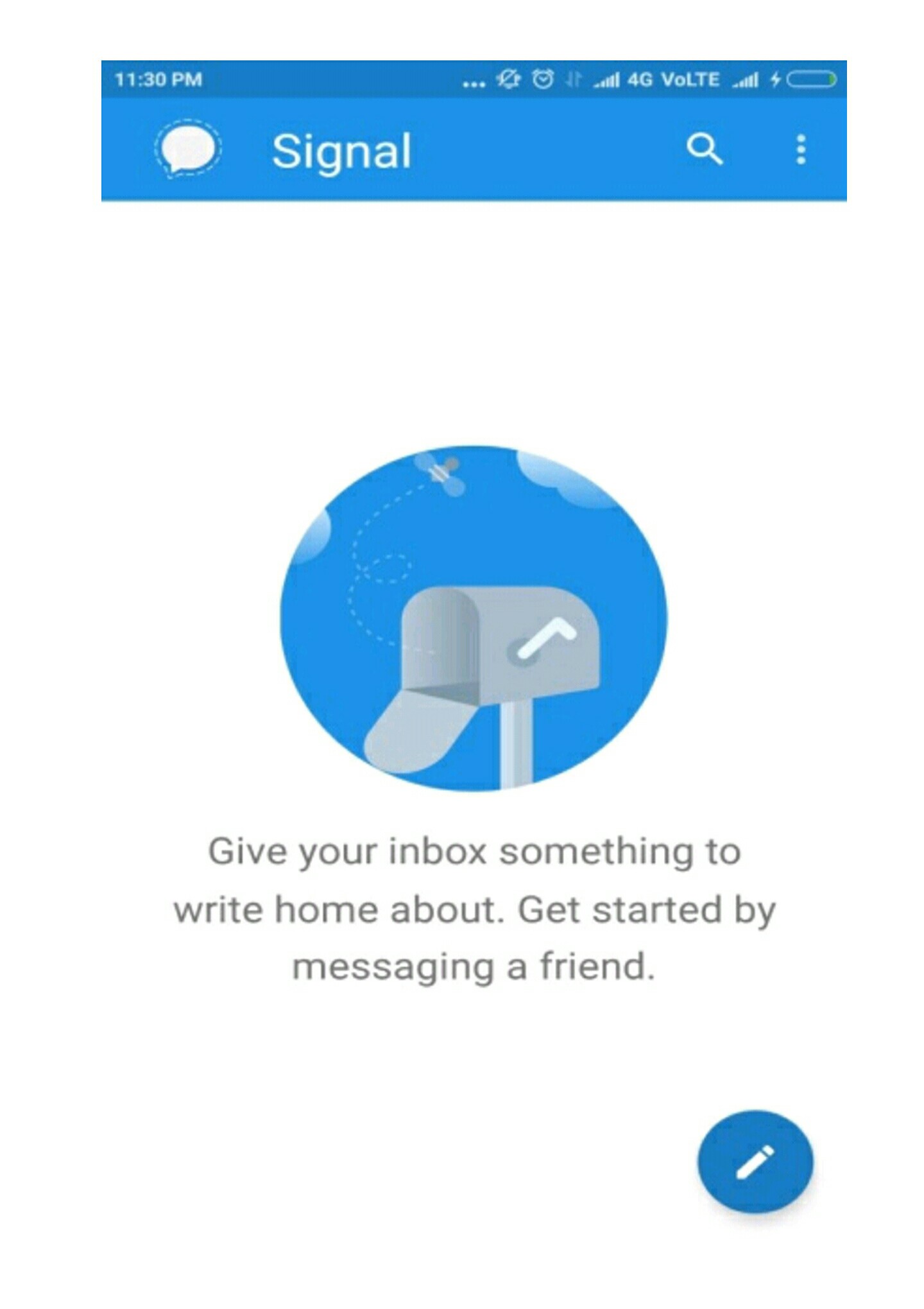
:max_bytes(150000):strip_icc()/Signal-5bedeb73c9e77c0051662425.jpg)
He was initially reluctant to add another app to his already-crowded phone, but the ongoing protest movement convinced him. Michael Onah, a 29-year-old attorney at the nonprofit law practice Phillips Black who represents people on death row, just downloaded the app last week, after his friends and colleagues suggested it to him.
#Signal messaging app download#
As more people download Signal, it is easier to move to encrypted conversations about issues not directly pertaining to the protests. She found that the apps people use to communicate are largely determined by their social group. Ruba Abu-Salma, who recently completed her doctorate in computer science at University College London, studied Telegram, an encrypted messaging app used widely in the Hong Kong protests. Now, wider adoption of encrypted apps seems possible. (Moxie Marlinspike, who founded Open Whisper Systems, the nonprofit that developed Signal, declined a request for comment.) 10, 2016, when information about the Russian hacking of American political parties came to light, and in late March of 2018, as news of the Cambridge Analytica breach of Facebook data dominated the news cycle. 21, 2017) and the day of the Women’s March (Jan. Downloads were high on Election Day (Nov. The first few months after the 2016 election were a busy time for Signal, according to data from the tracking firm Apptopia.

In recent years, downloads of Signal have spiked during times of national anxiety and unrest.

government has a long history of observing and tracking American citizens.) But after the Patriot Act permitted warrantless wiretapping in 2001 and Edward Snowden leaked information from the National Security Agency in 2013, awareness of mass surveillance has grown. Once, to many Americans, government surveillance felt like something that only happened in other countries. “I stood in front of a crowd of a few thousand people the other day and told them to wear as nondescript clothing as possible,” said Lilith Sinclair, 25, an Afro-Indigenous organizer who lives in Portland, Ore.Ĭonversations about privacy and data security have only recently come to the fore. (A spokesman for WhatsApp said the company does not keep records of private conversations.) “WhatsApp is owned by Facebook, so it makes money off of who is talking to whom, when,” said Bex Hong Hurwitz, 39, the founder of Tiny Gigantic, a company that works with activists and organizers to promote digital safety. In addition to privacy, some users are concerned about who may profit from their use. “Signal is like taking to someone I want to talk to, and going into a very quiet corner.” “Facebook and Twitter feel like standing on the side of the street, just kind of like, yelling,” said Jelani Drew-Davi, a 25-year-old black campaign manager at Kairos, an organization that teaches digital organizing strategies to people of color. Signal does not store messages or contacts on its servers, so it cannot be forced to give copies of that information to the government. The only information it could provide was the date the accounts in question were created and when they had last used Signal. In 2016, the chat service withstood a subpoena request for its data. Many activists believe the application is only as secure as Mark Zuckerberg’s convictions. WhatsApp is encrypted but owned by Facebook. SMS texts are not encrypted, so those messages can be read easily off the servers and cell towers that transmit the data. The app uses end-to-end encryption, which means each message is scrambled so that it can only be deciphered by the sender and the intended recipient. But as awareness of police monitoring continues to grow, protest attendees are using Signal to communicate with friends while out on the streets. Organizers have relied on Signal to devise action plans and develop strategies for handling possible arrests for several years. (Rani Molla at Recode noted that downloads of Citizen, the community safety app, are also way up.) In the first week of June, there were 183,000. The following week, as protests grew nationwide, there were 78,000 new downloads. The week before George Floyd died on May 25, about 51,000 first-time users downloaded Signal, according to data from the analytics firm Sensor Tower. Many are using the app to organize and participate in protests against police brutality (without being spied on by law enforcement). Over the last two weeks, the number of Americans who have downloaded Signal, an encrypted messaging application, has skyrocketed.


 0 kommentar(er)
0 kommentar(er)
